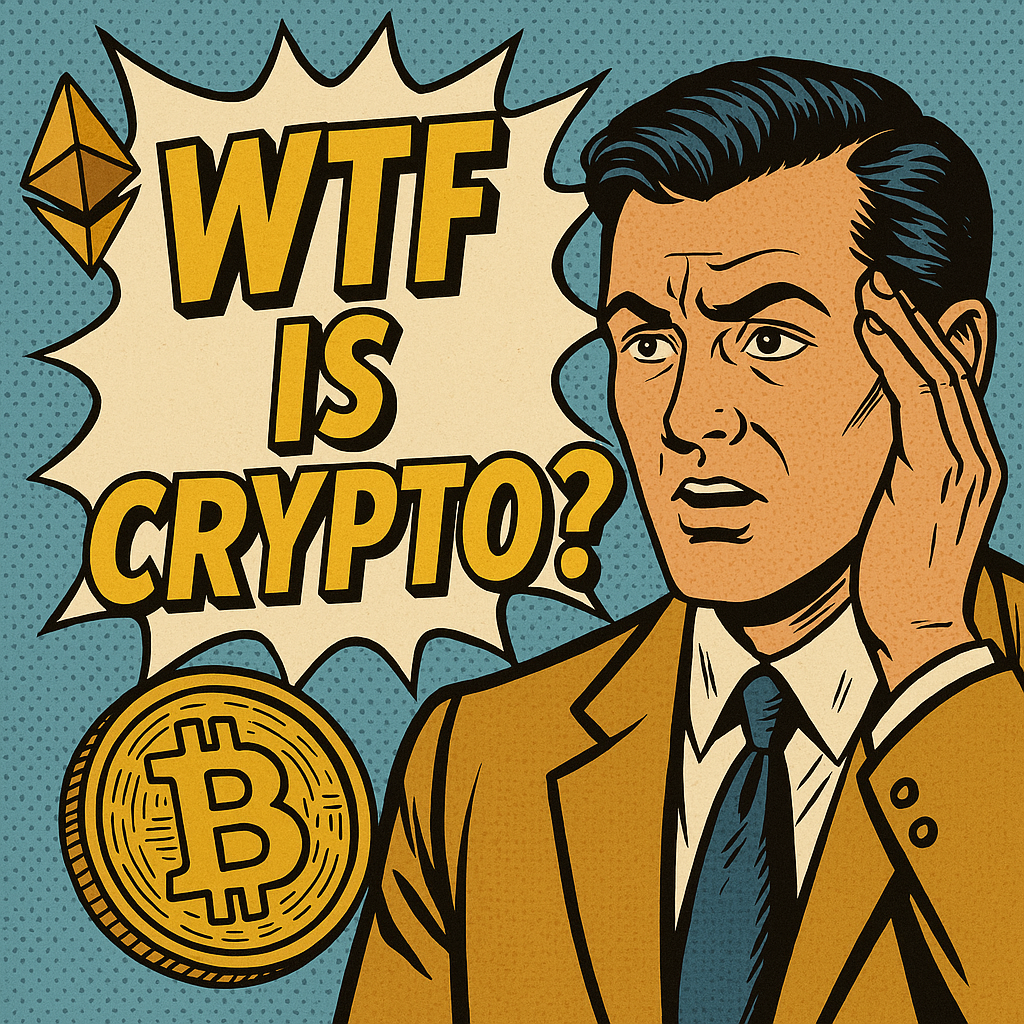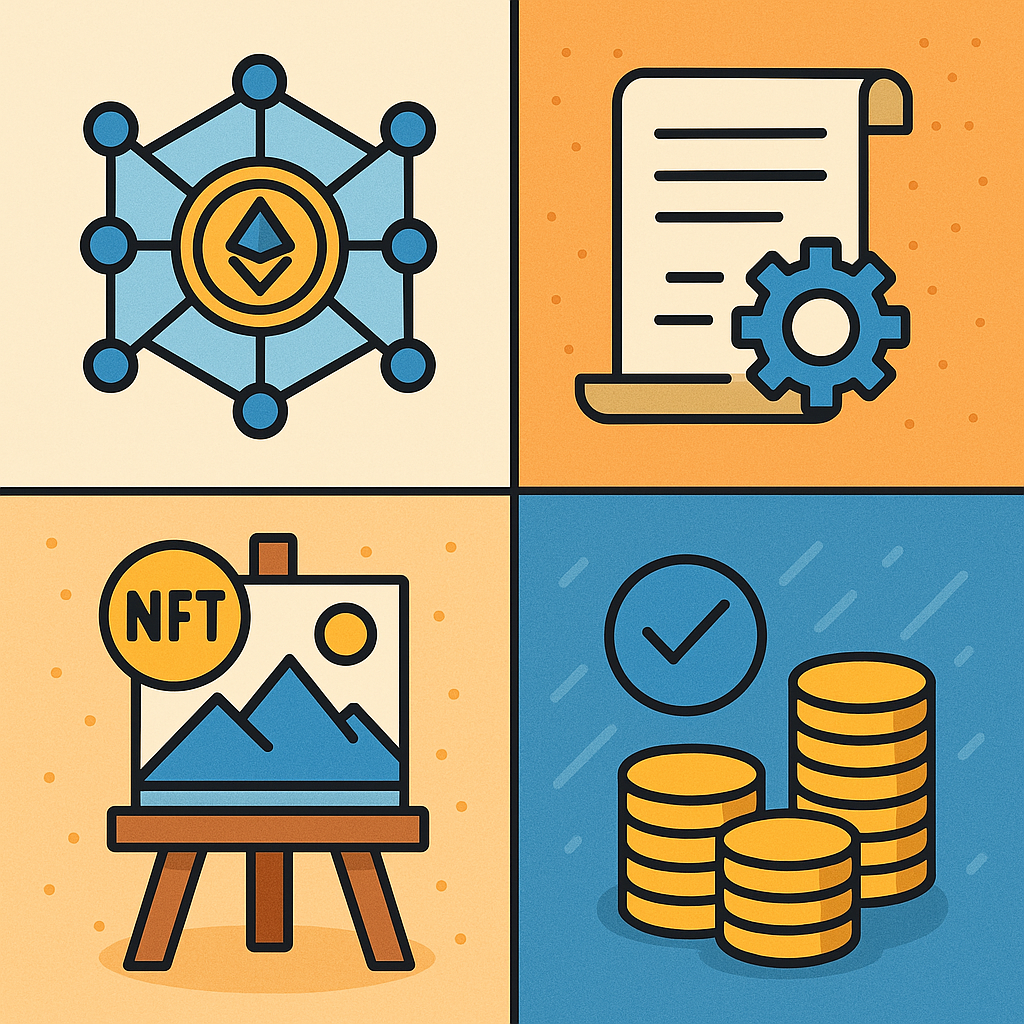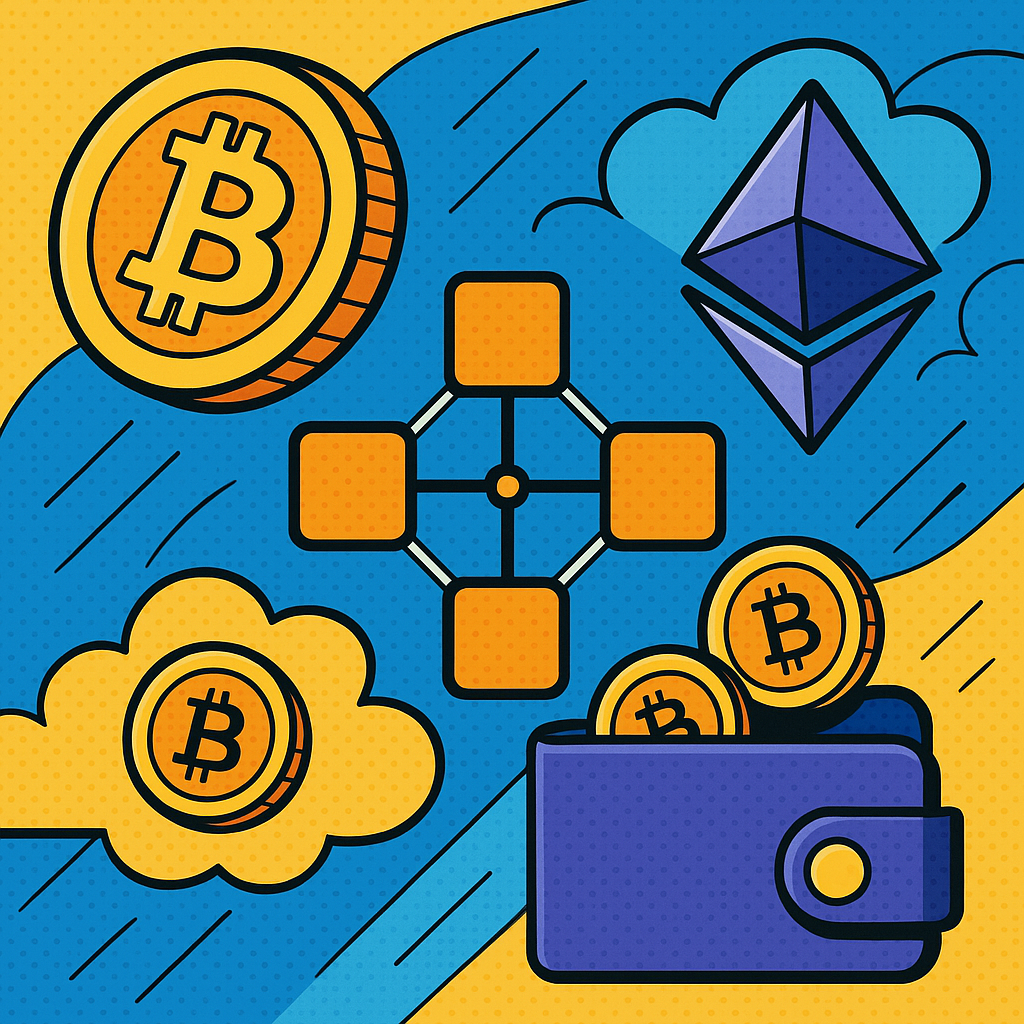Let’s be honest:
Crypto seems like a chaotic mess from the outside.
One minute it’s “the future of money,” the next it’s a meme coin crash, another hack, or a billionaire posting rocket emojis.
So why are serious developers, researchers, and communities still here — building, testing, and learning?
Because underneath all the noise, there’s something worth paying attention to.
This article is your sober introduction. No hype, no fluff. Just the real reasons why crypto exists, what it’s trying to fix, and why it might matter more than you think.
What “Crypto” Really Means
Most people hear “crypto” and think of Bitcoin or NFTs. But that’s just the tip of the iceberg.
At its core, crypto is short for cryptography — the science of secure communication and data integrity.
What makes “crypto” today unique is the combination of:
- Cryptography: Ensuring data can’t be forged or tampered with.
- Distributed systems: Networks that no single person or entity controls.
- Incentives: Tokens that reward good behavior and secure the system.
This trio is the backbone of blockchains — databases that are public, shared, and verifiable. And on top of these, we build things like:
- Tokens (representing value, rights, access, ownership)
- Smart contracts (self-executing agreements)
- Decentralized apps (dApps) (products that don’t rely on middlemen)
What Problem Is Crypto Trying to Solve?
To answer that, ask yourself:
Who do you trust with your money, data, identity, and future?
Historically, we’ve had to trust:
- Banks not to block or freeze your funds.
- Governments not to inflate your currency.
- Big Tech not to sell your data.
- Platforms not to censor your voice.
Crypto doesn’t claim to fix all of this overnight. But it asks a different question:
What if we didn’t have to trust — but could verify instead?
That’s the shift: from centralized trust to transparent systems.
Why Should You Care? (Real-World Use Cases)
Crypto isn’t just a playground for finance nerds or internet gamblers. It’s already solving problems for real people.
Here’s how:
- Global payments without middlemen, borders, or bank delays.
(Send $10 to a friend in Venezuela without a 3-day hold or a $30 fee.) - Access to savings and stable currencies in countries with hyperinflation.
(Holding USDT instead of a collapsing national currency.) - Owning digital assets: Not just money, but art, game items, identities.
(NFTs, gaming skins, social media handles — in your wallet, not the platform’s.) - Open income opportunities: From staking to airdrops to gig work in crypto-native platforms.
(You don’t need permission — just a wallet.) - Censorship resistance: Tools for privacy, anonymous donations, or freedom of speech.
(Whether or not you need it now, others do.)
Crypto is a toolkit. And like any tool, it depends on how you use it.
What Crypto Is Not (Common Misconceptions)
Let’s clear the air:
- “Crypto is only for criminals”
– Cash is still the #1 choice for illegal activity. Crypto transactions are public. Law enforcement uses blockchain data all the time. - “It’s just a get-rich-quick scheme”
– Yes, there’s speculation. But there’s also real infrastructure, science, and experimentation happening. - “It’s too late to start”
– Not even close. Most people haven’t used a wallet, joined a DAO, or interacted with a testnet. The curve is just beginning.
But What About the Risks?
Fair question. Crypto isn’t magical or risk-free.
- Volatility: Prices swing wildly. If you treat it like a casino, it’ll feel like one.
- Scams: Rug pulls, phishing, fake airdrops — you’ll need street smarts.
- Learning curve: Self-custody, gas fees, networks — it takes time to get comfortable.
But risks can be managed with education, practice, and community.
So… Why Should You Care Again?
Because even if you don’t plan to invest a dollar, crypto is changing:
- How we define ownership.
- How we build trust online.
- How communities fund and govern themselves.
- How power is distributed in a digital age.
It’s not a silver bullet. But it is a new frontier.
What’s Next?
Skip it. Read it. Save it for later.
No pressure — just putting the info out there.
Some people like to jump right in. Others take their time, watch from the sidelines, or circle back months later.
Do your thinking, and enjoy the way.
See you later 😉



